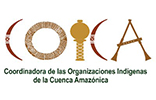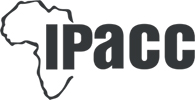Former Civil Society Partners

The Coordinator of the Indigenous Organizations of the Amazon Basin (COICA), is an indigenous organisation that promotes, protects and assures the full exercise of fundamental rights as an integral part of nature and the universe. COICA aims at generating policies, proposals and actions at the local, national and international levels to promote the equitable development of the Amazonian nationalities and indigenous peoples.
Website: https://coica.org.ec

Globethics.net is a worldwide ethics network based in Geneva, with an international Board of Foundation of eminent persons. It provides an electronic platform for ethical reflection and action. Its central instrument is the internet site www.globethics.net. For its activities in research and access to knowledge in ethics, Globethics.net can also be called a learned society. The aim of Globethics.net is to ensure that people in all regions of the world are empowered to reflect and act on ethical issues.
Website: https://www.globethics.net

The Foundation for Science, Technology and Civilisation (FSTC) is a British not-for-profit, non-political, and non-religious organisation founded in 1999 by a group of philanthropic historians, scientists, engineers and social scientists. It is dedicated to researching and popularising the history of pre-Renaissance civilisations, especially the Muslim civilisation, that have had an impact upon the scientific, technological and cultural heritage of our modern world. FSTC, UK is an action purpose branch of FSTC Ltd., that produces content for educational purposes with a UK focus but not exclusively.
Website: http://www.fstc.org.uk

The Center for Applied Linguistics is a private, nonprofit organization promoting access,equity and mutual understanding for linguistically and culturally diverse people around the world. The mission of CAL is to promote language learning and cultural understanding by serving as a trusted source for research, resources, and policy analysis. Through its work, CAL seeks solutions to issues involving language and culture as they relate to access and equity in education and society around the globe.
Website: http://www.cal.org

The Indigenous Peoples of Africa Co-ordinating Committee (IPACC) is a network of 150 indigenous peoples’ organisations in 20 African countries. It is a membership organisation. Any legitimate organisation composed of African indigenous peoples is welcome to apply for membership. Other associations working in development, human or indigenous rights may apply for associate (non-voting) membership. Members elect an Executive Committee representing six geographic and cultural regions in Africa including a special regional representative of indigenous women.
Website: http://www.ipacc.org.za
